How to Remove Mortar From Tiles (7 Expert Tips)
-
- Last updated:
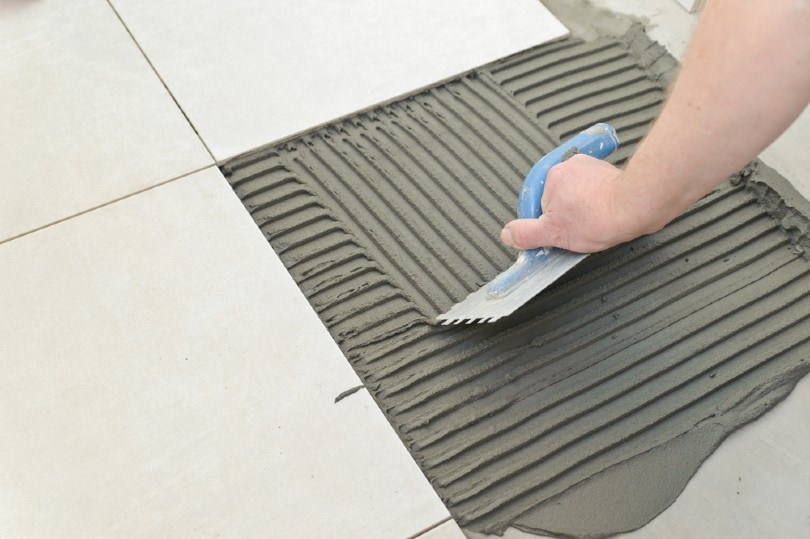
Reusing old tiles is environmentally friendly and can help you cut costs. However, you will need to remove any thin-set mortar still clinging to them before you can put them to use again. If you aren’t sure how to get this mortar off, keep reading as we list several steps that you can take to get your tiles looking like new again.
Click below to jump ahead:

Before You Begin
Before removing mortar from tiles, you must gather your tools and equipment. A few steps in this project require wearing safety equipment, so you won’t want to stop once you begin. All the items are fairly inexpensive and easy to obtain online or at your local grocery store. You might even already have them around your home.
- Muriatic acid
- Water
- White vinegar
- Dishwashing liquid
- Hammer and chisel
- 50-grit sandpaper
- Sponge
- Safety goggles
- Safety gloves
- Respirator
How to Remove Mortar From Tiles (7 Tips)
1. Use a Hammer and Chisel
If any large chunks of mortar remain on your tile, you can remove them by carefully breaking them off with a hammer and chisel. Don’t move too quickly, though, or you risk damaging the tile.

2. Use Sandpaper
Sandpaper can be a great way to remove large pieces of mortar without damaging the tile or using dangerous chemicals, as long as you don’t accidentally scrape the tile face. Rough sandpaper will remove the mortar quickly, while fine sandpaper is good for detailing. 50-grit sandpaper is usually a good place to start.
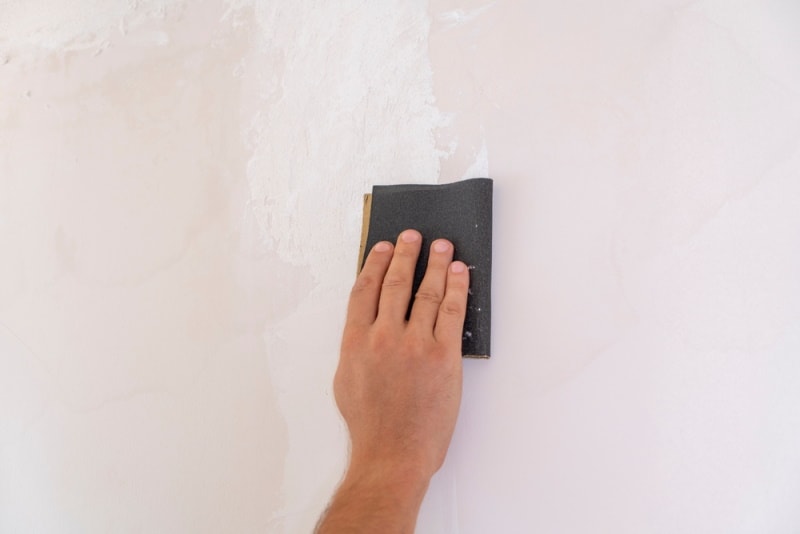
3. Use Dishwashing Liquid
If you got lucky and your tiles came off clean, you might be able to remove any light mortar using nothing more than dishwashing liquid, water, and a scrub sponge. Mix a small amount of the dishwashing liquid in a cup of water, and dip the sponge in it before scrubbing the tile. This method requires patience and elbow grease, but it’s cheap and non-toxic and won’t damage the tile.
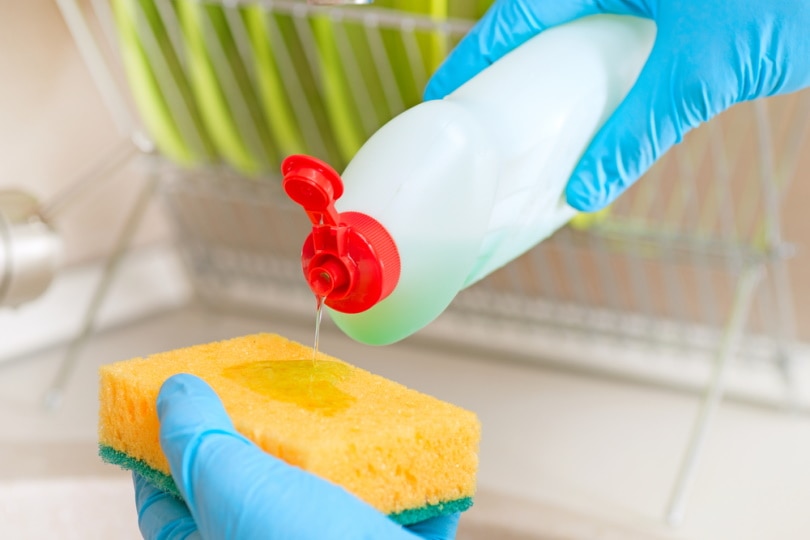
4. Scrub with White Vinegar
You can use white vinegar to help get your tile clean and remove the old mortar. White vinegar is more acidic than dishwashing liquid, so it can work better to break up the thin-set mortar. Mix equal parts of water and white vinegar in a large container, and dip your sponge into it before scrubbing the tile. Be patient, as it takes a while for the vinegar to break up the mortar.
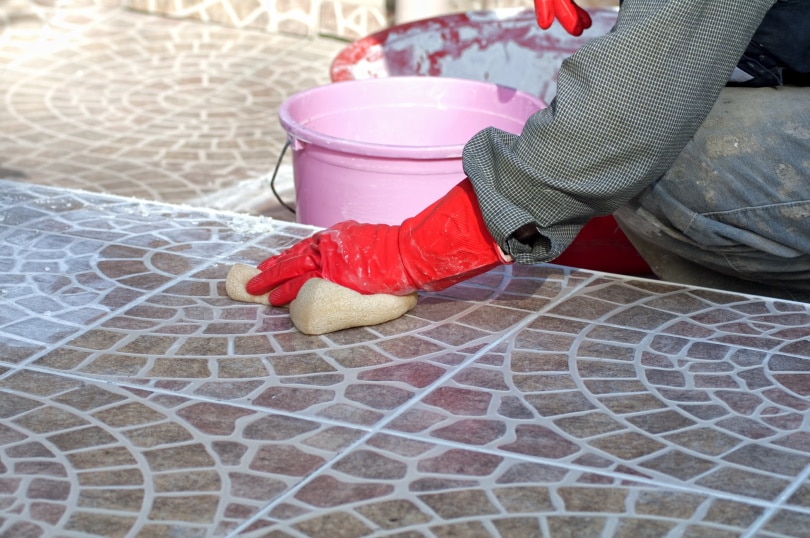
5. Soak in White Vinegar
If the mortar isn’t breaking up as quickly as you would like, you can try soaking the tiles in a container filled with pure white vinegar overnight to let the acid get to work. Then, in the morning, use your sponge to scrub the stubborn mortar.
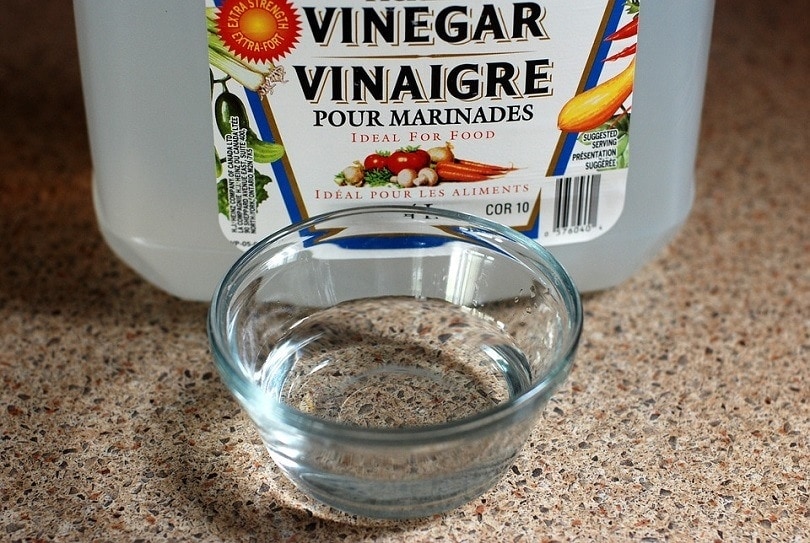
6. Soak in Muriatic Acid
Before attempting this idea, put on all your safety equipment, including protective gloves and goggles, a respirator, and heavy clothing, as the acid is extremely dangerous. Once you are ready, fill a large plastic tub with 5 gallons of water, then carefully pour in 1 cup of muriatic acid. Use a stick to stir the solution before placing your tiles inside to soak for 5–10 minutes. Then, while still wearing your safety equipment, remove the tiles, and use your sponge to scrub away the mortar. Repeat if necessary, and rinse the tiles with water when clean.
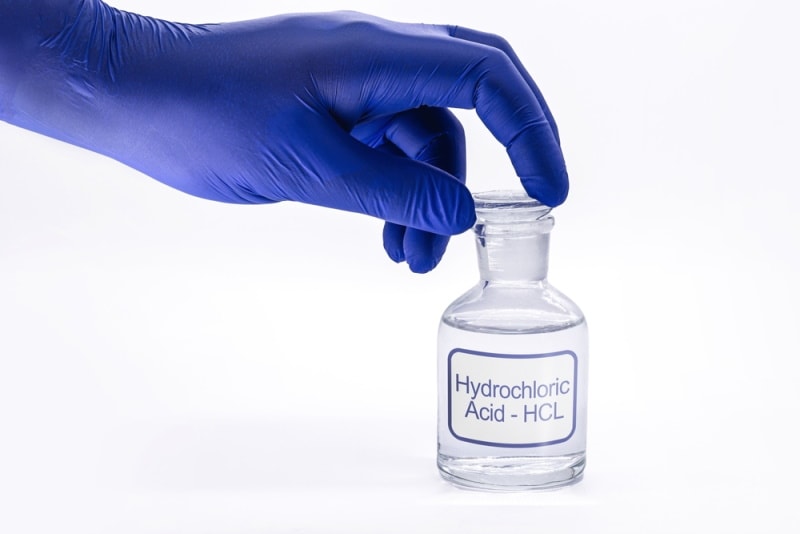
7. Apply Muriatic Acid Directly
If none of these steps have successfully removed the mortar, you have one option left. While wearing all your protective equipment, carefully pour muriatic acid directly onto the tile while using your sponge to scrub away the mortar. This option works well but can be dangerous because the scrubbing can send small particles of acid flying into the air.
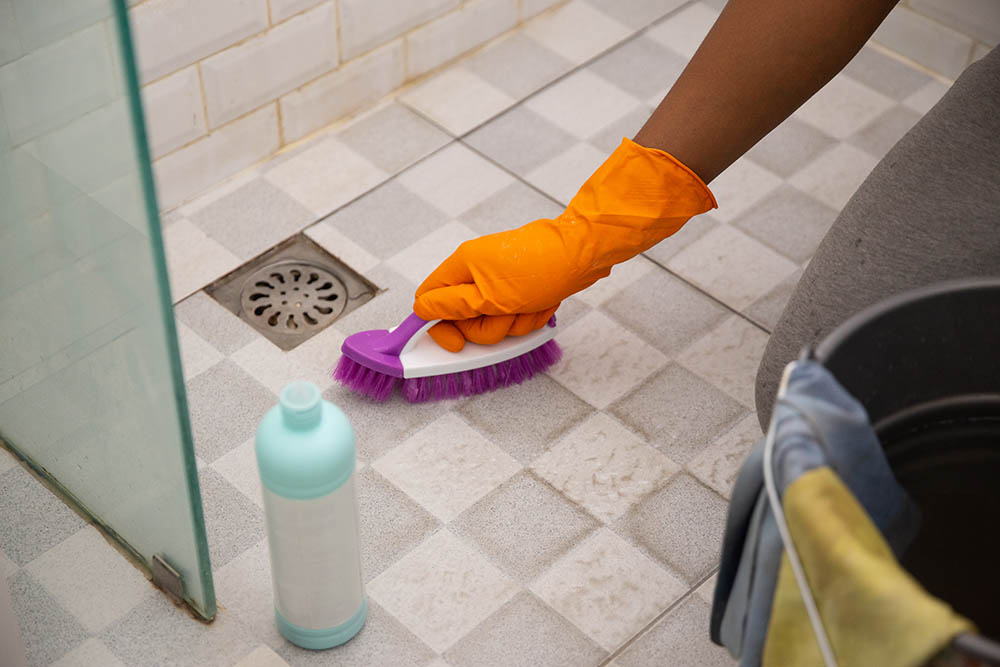
Other Tips and Tricks
- Keep tiles looking new by cleaning them regularly with vinegar and water or baking soda and water. Use a scrubbing sponge that removes grime without scratching the tiles.
- Ammonia is a great way to remove mildew from tile and help bring out its natural shine.
- Clean your tiles several times each week to keep them looking their best.

Conclusion
Removing mortar from tile can be time-consuming and requires a great deal of elbow grease. We recommend carefully chipping away the large pieces with a hammer and chisel and then using sandpaper to get close to the surface. Vinegar and a good scrubbing sponge will usually remove any remaining mortar. If you are in a hurry and have the proper safety equipment, you can speed up the removal and reduce the work that you need to do by using muriatic acid.
Featured Image Credit: DUO Studio, Shutterstock
Contents

